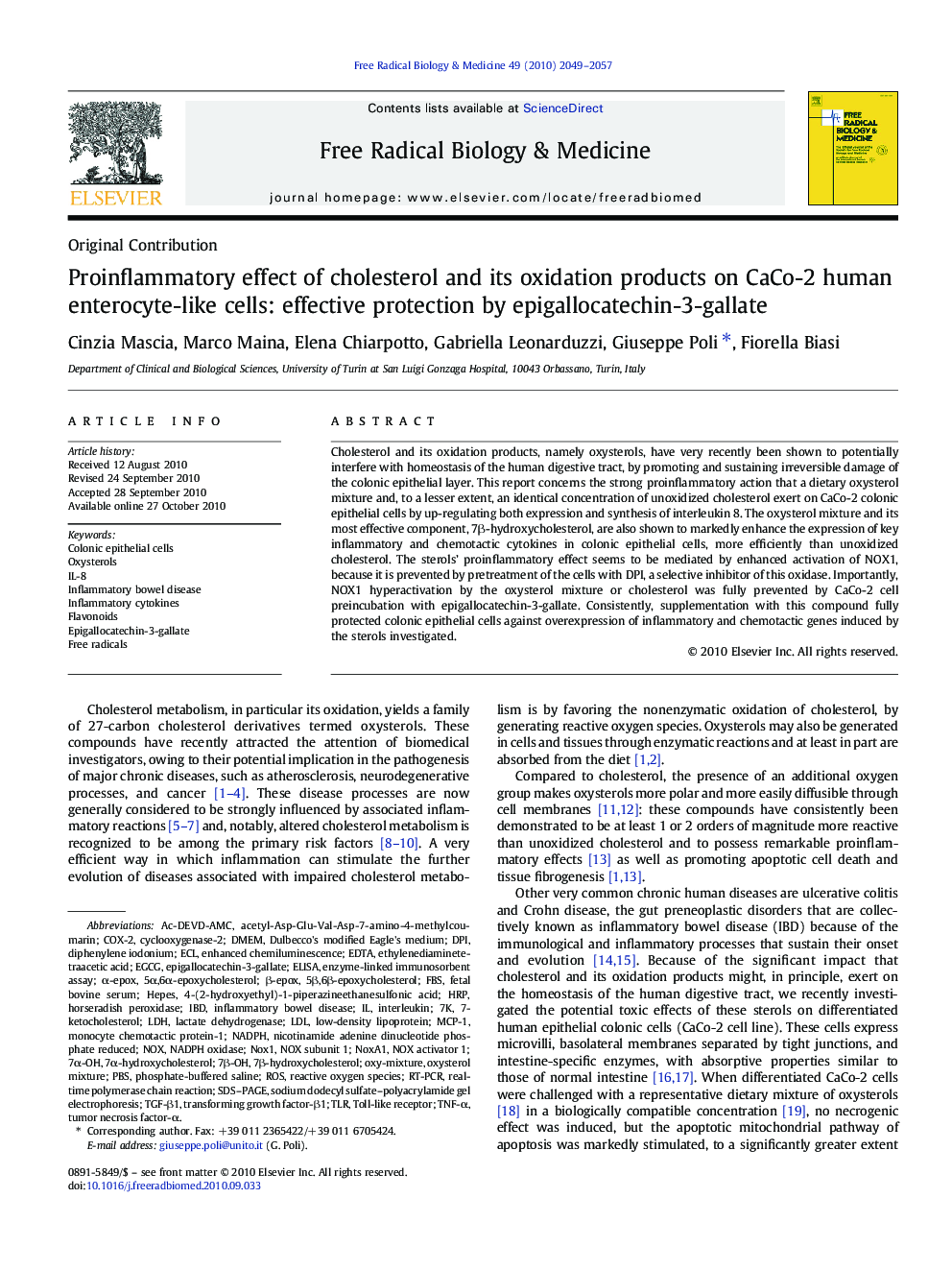| Article ID | Journal | Published Year | Pages | File Type |
|---|---|---|---|---|
| 1909769 | Free Radical Biology and Medicine | 2010 | 9 Pages |
Cholesterol and its oxidation products, namely oxysterols, have very recently been shown to potentially interfere with homeostasis of the human digestive tract, by promoting and sustaining irreversible damage of the colonic epithelial layer. This report concerns the strong proinflammatory action that a dietary oxysterol mixture and, to a lesser extent, an identical concentration of unoxidized cholesterol exert on CaCo-2 colonic epithelial cells by up-regulating both expression and synthesis of interleukin 8. The oxysterol mixture and its most effective component, 7β-hydroxycholesterol, are also shown to markedly enhance the expression of key inflammatory and chemotactic cytokines in colonic epithelial cells, more efficiently than unoxidized cholesterol. The sterols’ proinflammatory effect seems to be mediated by enhanced activation of NOX1, because it is prevented by pretreatment of the cells with DPI, a selective inhibitor of this oxidase. Importantly, NOX1 hyperactivation by the oxysterol mixture or cholesterol was fully prevented by CaCo-2 cell preincubation with epigallocatechin-3-gallate. Consistently, supplementation with this compound fully protected colonic epithelial cells against overexpression of inflammatory and chemotactic genes induced by the sterols investigated.
